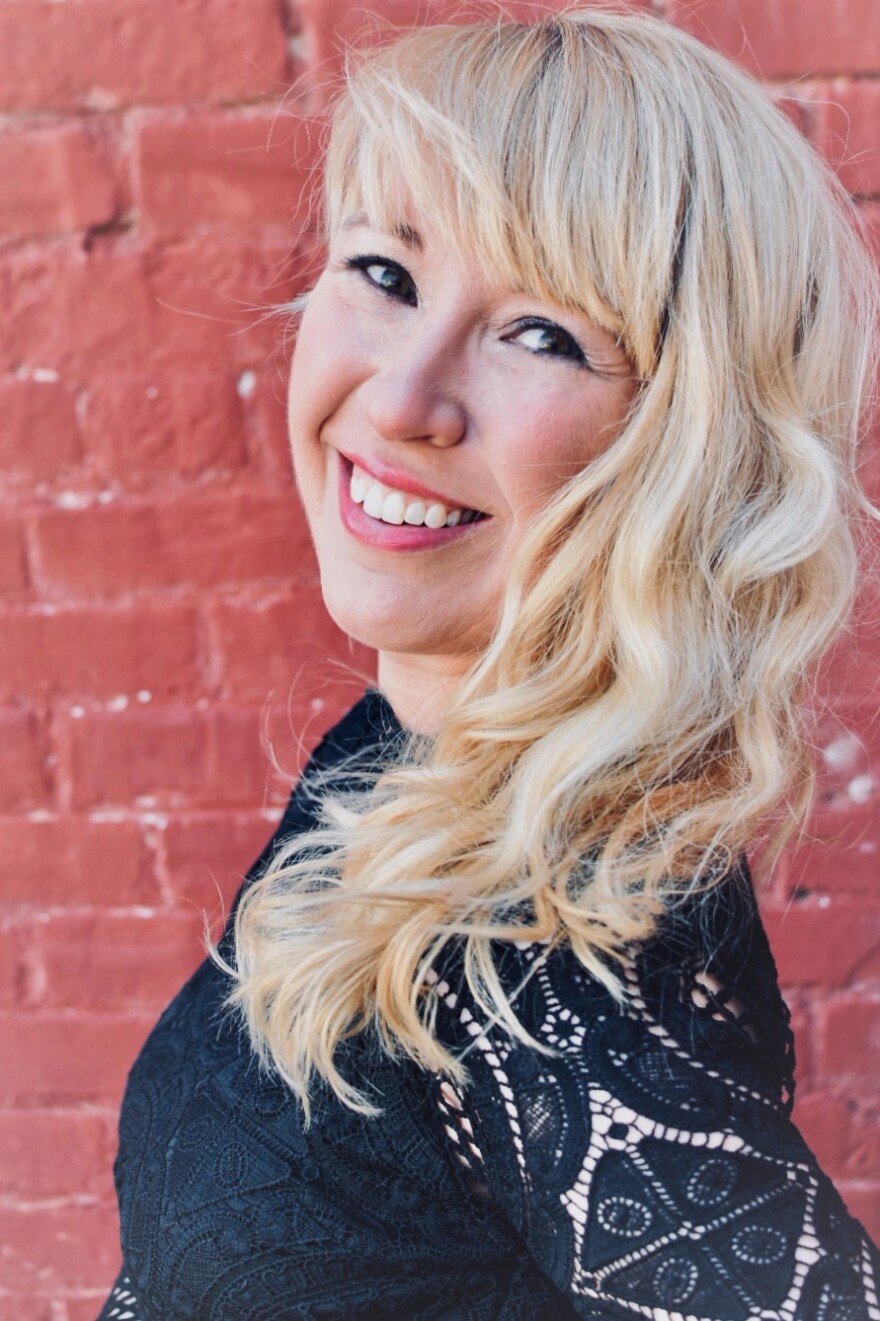One of the anthropology classes offered at Western Illinois University examines how communities have responded to past disasters. But when the global COVID-19 pandemic struck this semester, the focus shifted to analyzing a major disaster as it unfolds.
Dr. Heather McIlvaine-Newsad teaches the course (Culture & Catastrophe: The Anthropological Study of Disasters).
“This class, the way I’ve taught it in the past, has been one where we’ve been removed from the field work. And now we are in the field. The students now are doing weekly diaries that are field journals,” she said.
“We’re talking about unemployment. We’re talking about mental health issues. We’re talking about worrying for other people. This is the learning we all have to do.”
Tri States Public Radio talked to three members of the class via teleconference on April 17. Here are just a few highlights. Listen to the audio link for the full conversation.
Christina Cottle
Cottle is a non-traditional student from Beardstown. She is a senior majoring in sociology with a minor in anthropology. Cottle said she will begin pursuing a master’s degree from WIU in the fall.

TSPR: The class started the semester examining past disasters. Do you see any similarities between what’s happening now and a particular disaster from the past?
Christina: It does show weaknesses in government policies. And of course it affects the most vulnerable of society. It does bring to the forefront where we are lacking in preparedness. Each disaster is different and unique but we are definitely lacking in a lot of ways.
TSPR: Can you point to any particular lesson learned so far from this disaster, or do you feel we need to get past a disaster before you can start to look at the lessons learned?
Christina: We need to be paying attention to the people and listening to what’s going on and learning now. With all the social inequalities that exist, we need to see where the weaknesses are and try to prevent them and take action now. We’ll continue to learn as it passes but take advantage of now.
TSPR: Is there anything you would like to add?
Christina: We need to be aware, pay attention to those around us, and be involved with each other.
*****
Emily Jawoisz
Jawoisz is a non-traditional student from Charlottesville, Virginia. She is a senior majoring in anthropology with a minor in music. She is deciding whether to pursue a master’s degree.

TSPR: You study disasters in this particular class and now we’re in the middle of a global disaster. What’s that been like?
Emily: Surreal. There are academic expectations of what you’re supposed to be reading up on. But then when it happens and it’s happening around you and you’re an active participant in it - it feels almost otherworldly, especially because things change so fast. It’s like, brace yourself.
TSPR: How would you say this situation and the response to this pandemic compares to the global flu pandemic of 1918?
Emily: The population since 1918 is different. Our city centers, how many people are in a city compared to what is rural. In a crowded city you have more people that are exchanging their germs or whatever they are passing on. And our lifestyle is entirely different than 100 years ago and could be a contributing factor to how a virus is being spread.
TSPR: Is there anything you would like to add?
Emily: I don’t think you need to be an anthropology student to pay attention to the world that’s going on around you. As an individual, it’s everybody’s responsibility to stay educated and stay informed and to ask questions relating to some bigger picture issues.
*****
Niki Nation
Nation is a non-traditional student from Peoria. She is a senior in the Integrated Bachelor in Anthropology/Master of Liberal Arts and Sciences (MLAS) program with a minor in Computer Science.

TSPR: Things have been changing fast with this pandemic. Is that something you’ve seen with past disasters too? Do things change quickly?
Niki: The United States almost had more time to respond, and our government really didn’t. I don’t know if they were thinking it’s because we’ve seen these types of viruses before, such as SARS and MERS, and those didn’t really travel the globe at a grand level. (With COVID-19), it seems like as soon as our first case got in, it went really fast and started spreading.
TSPR: Can you point to any particular lesson learned so far from this disaster, or do you feel we need to get past a disaster before you can start to look at the lessons learned?
Niki: I think the best time to learn is during. I think we can learn a lot now and we will learn a lot after. I’m a data person so I always hope that we have a lot of data to look at and to search through. And not only data but one of the pillars of anthropology is ethnography, so we want to talk to people and see how they’re doing and what they’re going through. And even afterward - what is society going to look like after this?
TSPR: Is there anything you would like to add?
Niki: This is a good time to continue practicing our solidarity and show a lot of compassion.
This story was produced by Tri States Public Radio. TSPR relies on financial support from our readers and listeners in order to provide coverage of the issues that matter to west central Illinois, southeast Iowa, and northeast Missouri. As someone who values the content created by TSPR's news department please consider making a financial contribution.







